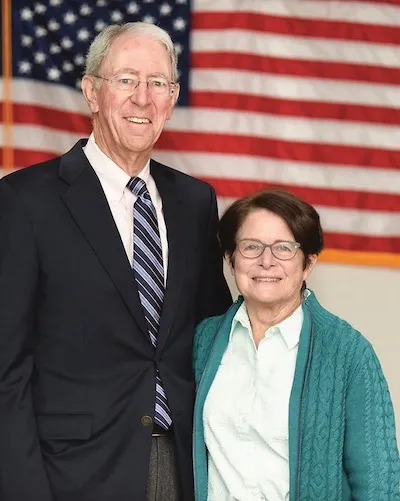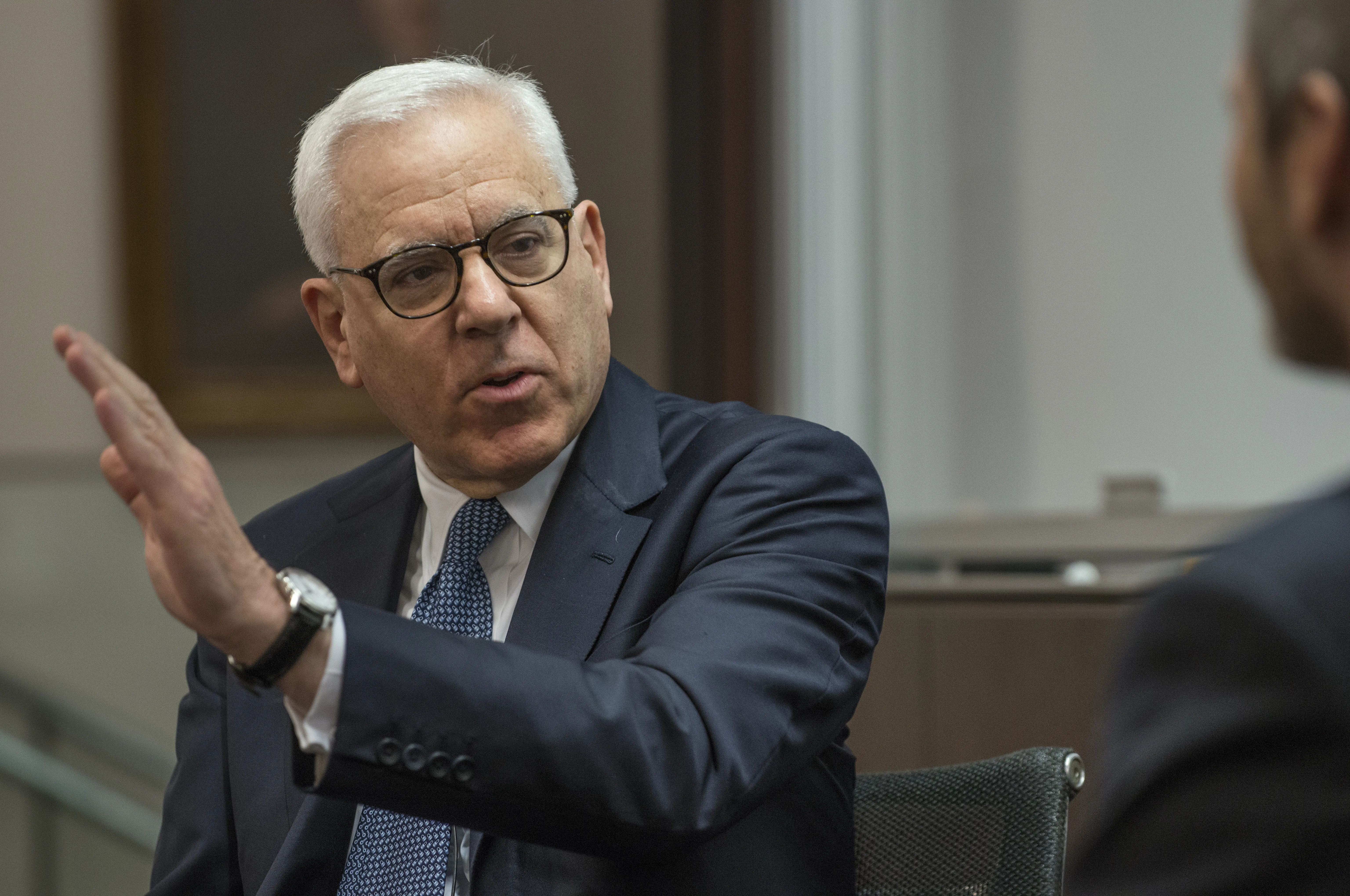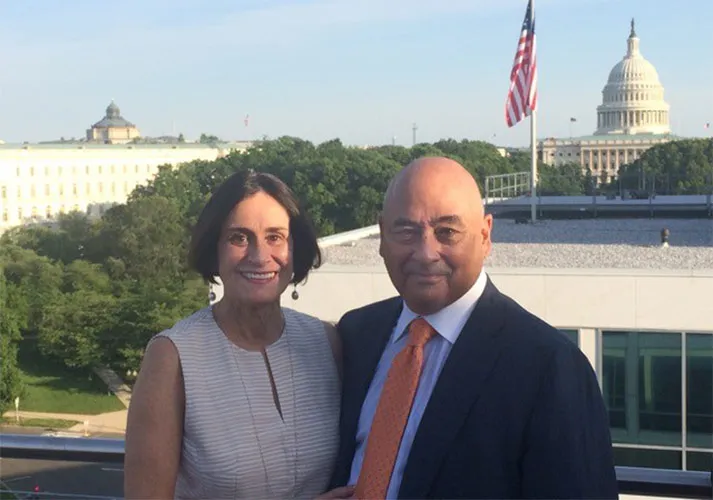Greenberg Gift Brings Interdisciplinary Seminars into Faculty Homes

Virtually everyone who has attended the Law School since 2004 knows what a “Greenberg” is—the shortened name students apply to the immensely popular Greenberg Seminars, the for-credit courses in which students and faculty meet in faculty homes to talk about the law in its broad societal and intellectual contexts. The topics of the more than 15 Greenbergs offered last year include “Law and Psychology in Popular Media,” “Greek Tragedy and Justice,” and “Reimagining Work.”
Dean of Students Shannon Bartlett said, “Spots in Greenberg Seminars are highly coveted during course registration, and students frequently cite a Greenberg Seminar as a particularly satisfying and enjoyable part of their Law School experience. The seminars reflect the Law School’s strong commitment to facilitating substantial student-faculty interactions centered on thoughtful intellectual inquiry.”
Daniel Greenberg, ’65, and his wife Susan Steinhauser, who is also an attorney, invented the seminars along with then-dean Saul Levmore in 2004, and now a million-dollar fund endowed by Greenberg and Steinhauser through the Greenberg Foundation will ensure that future generations of students can experience the special pleasures of those seminars, which include free food along with stimulating conversation led by two faculty members.
“I came to the Law School from an intense liberal arts environment at Reed College,” Greenberg recalled. “I was disappointed that in my time at the Law School there wasn’t as much attention as I would have liked to the ways in which the law intersects with individuals’ lives and with society in general. When Dean Levmore approached me to discuss how Susan and I might support the Law School, the three of us put our heads together and came up with what became the ‘Greenbergs,’ a central feature of which was that as often as possible, the seminars would be jointly taught by one faculty member from the Law School and another faculty member from a different part of the University.”
Before he retired last year, Greenberg had served since 1979 as the chairman and CEO of Electro Rent, a global company that rents and sells test and measurement equipment to companies in industries that include telecommunications, defense, electronics, and aerospace. Just before Greenberg retired, the company, whose revenues grew under his leadership from less than $10 million to nearly $240 million, was sold for about
$386 million.
Even as he was guiding Electro Rent through substantial technological, organizational, and marketplace transitions, Greenberg sustained an active national presence in public affairs. Among other things, he served as a trustee and board chair of the Sierra Club Legal Defense Fund and is now a life trustee of its successor organization, Earthjustice; he was a trustee of the National Public Radio Foundation and CARE; and he was a member of Business Executives for National Security. He has served on Reed’s board of trustees for more than forty years, and at the Law School he is presently a member of the Campaign Cabinet, previously served on the Visiting Committee, and has been a friend and valued advisor to many of the School’s deans.
Greenberg and Steinhauser are renowned art collectors. They have been named among the world’s 10 most influential collectors of photography, and their collections of ceramics, turned-wood sculptures, contemporary glass, and pre-Colombian and Neolithic jade objects are also highly regarded. They have donated important works to major museums throughout the world, and provided works for many significant exhibits. “Just as important as what you collect,” Steinhauser has said, “is what you do with it. As collectors, we are just temporary stewards of the works, with a responsibility to get them out to the public, whether through gifts, speaking, loans, visits, or writing.”
Greenberg said that the sale of Electro Rent enabled him to fulfill some lifelong goals he had held, one of which was to help ensure the continuation of the Greenberg Seminars. “I’m happy that Susan and I were able to contribute to expanding the boundaries of intellectual discourse in the Law School’s offerings in ways that have been so well received by students, faculty, and a series of deans. We’re glad that we can now confidently foresee that far into the future, students will be still be enjoying and learning from the ‘Greenbergs.’”


